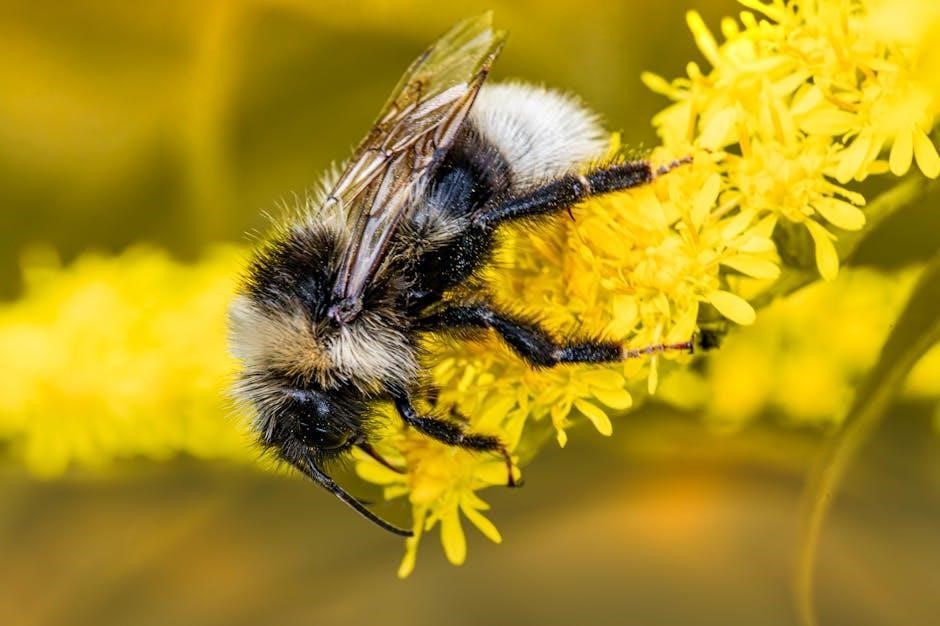
-
By:
- cierra
- No comment
cgp ks3 science workbook answers pdf free download
The CGP KS3 Science Workbook is a comprehensive resource designed to support students in mastering Key Stage 3 Science․ It covers Biology, Chemistry, and Physics topics, offering structured exercises and detailed explanations to enhance learning․ The workbook aligns closely with the KS3 curriculum, making it an ideal study aid for pupils aiming to excel in science․ Its clear layout and engaging content help students build confidence and understanding, while the included answers provide valuable feedback for self-assessment․
1․1 Overview of the Workbook
The CGP KS3 Science Workbook is a meticulously designed resource tailored for students navigating Key Stage 3 Science․ It encompasses a broad spectrum of topics across Biology, Chemistry, and Physics, ensuring a holistic understanding of scientific concepts․ The workbook is structured to guide students through progressive exercises, each crafted to reinforce learning and build confidence․ With clear explanations and practical examples, it serves as an invaluable tool for both independent study and classroom use․ Its user-friendly layout and concise content make complex topics accessible, while the inclusion of visual aids and diagrams enhances engagement․ This workbook is an essential companion for students aiming to excel in KS3 Science․
1․2 Importance of KS3 Science Education
KS3 Science education is crucial for building foundational knowledge and skills that shape students’ understanding of the world․ It fosters critical thinking, problem-solving, and scientific literacy, essential for future academic and career opportunities․ By exploring Biology, Chemistry, and Physics, students develop a curiosity-driven mindset, enabling them to engage with global challenges and innovations․ KS3 Science also nurtures practical skills, such as experimentation and data analysis, which are vital for STEM fields․ This stage lays the groundwork for more advanced studies, ensuring students are well-prepared to tackle complex concepts and contribute to society’s scientific advancements․ Investing in KS3 Science education empowers students with the knowledge and skills needed for lifelong learning and personal growth․

1․3 Benefits of Using CGP Resources
CGP resources, such as the KS3 Science Workbook, offer numerous benefits for students and educators․ They provide comprehensive, well-structured content that aligns with the curriculum, ensuring thorough coverage of key topics․ The workbooks are designed to enhance learning with clear explanations, practice exercises, and progress-tracking features․ CGP materials are widely regarded for their clarity and accessibility, making complex concepts easier to understand․ Additionally, they support independent study, allowing students to reinforce their knowledge at home․ The inclusion of detailed answer sections enables effective self-assessment, helping students identify areas for improvement․ Overall, CGP resources are invaluable tools for achieving academic success and building confidence in science and other subjects․

Structure of the CGP KS3 Science Workbook
The workbook is organized into chapters covering Biology, Chemistry, and Physics, with practice exercises and progress-tracking tools․ It aligns with the KS3 curriculum, ensuring comprehensive coverage․
2․1 Chapters and Topics Covered
The CGP KS3 Science Workbook is divided into chapters that cover a wide range of topics across Biology, Chemistry, and Physics․ Each chapter focuses on key areas, such as cell biology, ecosystems, forces, energy, and materials․ The workbook ensures a comprehensive understanding of fundamental scientific concepts, with topics carefully aligned to the KS3 curriculum․ Detailed explanations and practice questions are provided for each section, helping students grasp essential knowledge․ The structured approach allows learners to progress systematically, building confidence and skills in science․ By covering all core subjects and topics, the workbook serves as a complete study resource for KS3 students aiming to excel in their science education․
2․2 Practice Exercises and Questions
The CGP KS3 Science Workbook includes a variety of practice exercises and questions designed to reinforce learning and prepare students for assessments․ These exercises range from multiple-choice questions to open-ended tasks, covering all key topics in Biology, Chemistry, and Physics․ The questions are structured to test understanding, application, and analysis skills, ensuring a deep grasp of scientific concepts․ Detailed answer explanations are provided, allowing students to review their work and identify areas for improvement․ Regular practice helps build confidence and fluency, making the workbook an essential tool for students aiming to achieve their full potential in KS3 Science․ The exercises are carefully crafted to align with curriculum objectives, ensuring comprehensive coverage of all essential topics․
2․3 Progress Tracking and Assessment
The CGP KS3 Science Workbook incorporates features that enable effective progress tracking and assessment․ Students can monitor their understanding through self-assessment sections, while teachers can use the included answers to evaluate performance․ The workbook aligns with the KS3 curriculum, ensuring that assessments cover all necessary topics․ Regular review exercises help identify strengths and weaknesses, allowing for targeted revision․ Progress tracking tools, such as checklists and summary pages, provide a clear overview of learning milestones․ This structured approach supports continuous improvement and prepares students for formal assessments․ By integrating assessment with practice, the workbook fosters a deeper understanding of scientific concepts and skills․ Regular feedback enhances learning outcomes, making it an invaluable resource for both students and educators․

Where to Find the Workbook Answers
The CGP KS3 Science Workbook answers are available on the official CGP website, educational platforms, and select file-sharing sites․ Ensure downloads are legal and virus-free․
3․1 Official CGP Website and Resources
The official CGP website is the most reliable source for accessing the KS3 Science Workbook answers․ It offers a dedicated section for resources, including answer books and study guides․ Students and teachers can easily navigate the site to find specific materials․ Additionally, CGP provides free sample chapters and interactive content to enhance learning․ By visiting the official website, users ensure they are accessing authentic and up-to-date materials, which are essential for effective study․ This resource is particularly beneficial for those seeking structured and accurate answers to workbook questions․ It supports self-study and classroom preparation effectively․
3․2 Third-Party Educational Websites
Several third-party educational websites offer resources related to the CGP KS3 Science Workbook, including answer keys and study guides․ Websites like Quizlet, StudyLib, and Course Hero often feature user-uploaded content, such as PDFs of answer books․ These platforms can be useful for quick access to solutions, but their reliability varies․ Some sites may charge for premium access or require registration․ While these resources can supplement learning, they should be used cautiously․ Always verify the accuracy of the content, as third-party sources may contain errors․ Additionally, ensure that downloading materials complies with copyright laws and site policies to avoid legal issues․ These platforms can be helpful but are no substitute for official CGP resources․
3․3 Torrent and File-Sharing Platforms
Torrent and file-sharing platforms are often used to distribute PDF versions of workbooks, including the CGP KS3 Science Workbook answers․ These platforms allow users to download content for free, but they come with significant risks․ Many files shared on such sites may be unauthorized copies, infringing on copyright laws․ Additionally, downloading from these platforms can expose users to malware or inaccurate content․ While some users seek these platforms for convenience, they often lack the quality and reliability of official resources․ Legal consequences and security risks make these platforms a less advisable option for accessing study materials․ It is always recommended to prioritize official or reputable sources for educational content․

3․4 Legal Considerations for Downloads
Downloading copyrighted materials, such as the CGP KS3 Science Workbook answers, without proper authorization can lead to legal consequences․ Copyright laws protect educational resources, and distributing or downloading them without permission is considered infringement․ While some individuals may seek free downloads for convenience, this practice carries risks, including potential fines or legal action․ Additionally, downloading from unauthorized sources often supports piracy, which harms publishers and content creators; Users should be aware of these legal implications and opt for official or licensed resources instead․ Supporting official channels ensures compliance with the law while also maintaining the quality and integrity of educational materials․ Always prioritize legal and ethical methods when accessing study materials․

Tips for Using the Workbook Effectively
To maximize learning, use the workbook daily, focusing on understanding concepts rather than rushing through exercises․ Regularly review mistakes to improve grasp of topics․
4․1 How to Maximize Learning with the Workbook
To maximize learning, use the workbook daily, focusing on understanding concepts rather than rushing through exercises․ Regularly review mistakes to improve grasp of topics․ Integrate the workbook into study routines by setting specific goals for each session․ Utilize the detailed answer explanations to clarify doubts and reinforce learning․ Engage actively with practice exercises, ensuring comprehension before moving forward․ By following these strategies, students can effectively utilize the workbook to enhance their science skills and achieve academic success․
4․2 Common Mistakes to Avoid
When using the CGP KS3 Science Workbook, avoid rushing through exercises without understanding the concepts․ Neglecting to review mistakes can hinder progress, as can skipping practice questions that reinforce learning․ Overreliance on answer keys without attempting problems first is another pitfall, as it limits the development of problem-solving skills․ Additionally, ignoring the workbook’s alignment with the KS3 curriculum may lead to gaps in knowledge․ By avoiding these mistakes and engaging actively with the material, students can maximize their learning experience and achieve better academic outcomes․ Consistent practice and thoughtful review are key to success with this resource․
4․3 Integrating the Workbook into Study Routines
To effectively integrate the CGP KS3 Science Workbook into study routines, establish a consistent schedule for practice․ Allocate specific times for working through chapters and reviewing answers․ Combine workbook exercises with online tools, such as video tutorials, to reinforce concepts․ Regularly review progress by tracking completed exercises and identifying areas for improvement․ Encourage active learning by attempting questions before consulting the answer keys․ Incorporate breaks to maintain focus and avoid burnout․ By aligning workbook use with curriculum topics, students can deepen their understanding and retain information more effectively․ Consistency and gradual progress are key to maximizing the workbook’s benefits and achieving long-term academic success․ Stay committed to this structured approach for optimal results․

Key Features of the CGP Workbook
The CGP KS3 Science Workbook offers detailed explanations, practice exercises, and progress tracking․ Its alignment with the KS3 curriculum ensures comprehensive coverage of science topics, while interactive content engages learners, fostering a deeper understanding and retention of key concepts․ The workbook’s structured approach supports independent study, making it an invaluable resource for students aiming to excel in science․
5․1 Detailed Answer Explanations
The CGP KS3 Science Workbook provides detailed answer explanations, enabling students to grasp complex concepts effortlessly․ Each question is accompanied by clear, step-by-step solutions, breaking down scientific principles into understandable parts․ These explanations not only clarify correct answers but also highlight common pitfalls, helping learners avoid mistakes․ The workbook’s emphasis on thorough feedback fosters a deeper understanding of key topics, from Biology to Physics․ By reviewing these explanations, students can identify areas for improvement and reinforce their knowledge․ This feature is particularly useful for self-study, as it simulates the guidance of a teacher, ensuring learners feel supported throughout their academic journey․ The clarity and precision of the explanations make them an invaluable resource for achieving academic success․
5․2 Interactive and Engaging Content
The CGP KS3 Science Workbook incorporates interactive and engaging content to captivate students and enhance their learning experience․ Features such as quizzes, diagrams, and hands-on activities make complex scientific concepts more accessible and enjoyable․ The workbook’s dynamic approach encourages active participation, helping students stay motivated and focused․ Interactive elements like flashcards and practice exercises allow learners to test their knowledge in a fun and challenging way․ This engaging format not only boosts retention but also makes studying more enjoyable, fostering a positive attitude toward science education․ By combining education with entertainment, the workbook ensures that students are both informed and inspired throughout their KS3 journey․
5․3 Alignment with KS3 Curriculum
The CGP KS3 Science Workbook is meticulously aligned with the KS3 National Curriculum, ensuring comprehensive coverage of Biology, Chemistry, and Physics topics․ Each chapter is structured to reflect the curriculum’s objectives, providing students with a seamless learning experience․ The workbook includes detailed explanations and practice questions that mirror the content taught in schools, helping students reinforce their understanding of key scientific concepts․ By following the curriculum closely, the workbook supports students in developing essential skills such as data analysis, scientific inquiry, and problem-solving․ This alignment ensures that learners are well-prepared for assessments and confident in their ability to meet curriculum expectations․ The workbook’s relevance to KS3 standards makes it an invaluable resource for both classroom and home study․

KS3 Science Curriculum Overview
The KS3 Science curriculum provides a foundational understanding of Biology, Chemistry, and Physics․ It focuses on developing scientific skills and preparing students for further studies in these fields․
6․1 Biology, Chemistry, and Physics Topics
The KS3 Science curriculum covers a wide range of topics in Biology, Chemistry, and Physics․ In Biology, students explore cell structures, ecosystems, and human physiology․ Chemistry introduces fundamental concepts like elements, compounds, and chemical reactions․ Physics topics include forces, energy, and simple machines․ These subjects are taught through practical experiments and theoretical learning, ensuring a balanced understanding․ The curriculum emphasizes scientific inquiry and critical thinking, preparing students for more advanced studies․ By mastering these topics, pupils develop essential skills and knowledge that form the basis of future scientific exploration․ This structured approach ensures a comprehensive foundation in each discipline․
6․2 Skills Development in KS3 Science
KS3 Science fosters essential skills such as scientific inquiry, critical thinking, and problem-solving․ Students learn to conduct experiments, analyze data, and draw conclusions․ Practical skills like observation, measurement, and use of scientific tools are emphasized․ Pupils also develop communication skills through discussions and presentations of their findings․ The curriculum encourages curiosity and creativity, enabling students to apply scientific concepts to real-world scenarios․ Collaborative learning activities promote teamwork and peer-to-peer teaching․ These skills are fundamental for building a strong foundation in science and preparing students for future academic challenges․ By nurturing these abilities, KS3 Science equips learners with the confidence and competence to explore complex scientific ideas․
6․3 Assessment and Grading Criteria
In KS3 Science, assessments are designed to evaluate students’ understanding and application of scientific concepts․ Grading criteria focus on accuracy, depth of knowledge, and ability to articulate ideas clearly․ Assessments include quizzes, classwork, and end-of-unit tests, with feedback tailored to guide improvement․ Skills like scientific inquiry and problem-solving are also assessed to ensure holistic development․ The grading system rewards critical thinking and creativity, encouraging students to explore scientific principles thoroughly․ Regular assessments help track progress, while final grades reflect mastery of the curriculum․ This structured approach ensures students are well-prepared for future academic challenges in science and beyond․ Clear criteria and constructive feedback are essential for fostering confidence and achievement․

Supporting Resources for KS3 Science
Online tools, video tutorials, and study groups complement the CGP workbook, offering interactive learning and peer support․ These resources enhance understanding and retention of scientific concepts effectively․
7․1 Online Tools and Applications
Online tools and applications provide students with interactive and accessible ways to enhance their KS3 Science learning․ Platforms like Quizlet offer flashcards and study games for key terms and concepts․ Websites such as Khan Academy feature video tutorials and exercises that align with the curriculum․ Additionally, educational apps like Kahoot! enable engaging quizzes and competitions to test knowledge․ These resources complement the CGP workbook by offering dynamic ways to practice and reinforce learning․ They are particularly useful for visual and interactive learners, making complex scientific ideas more accessible․ Many of these tools are free or low-cost, ensuring accessibility for all students․
7․2 Video Tutorials and Guides
Video tutorials and guides are excellent supplementary resources for KS3 Science students, offering visual and auditory explanations of complex concepts․ Platforms like YouTube and educational websites provide a wealth of free content that aligns with the KS3 curriculum․ These tutorials often break down topics into manageable segments, making them easier to understand․ Many videos include interactive elements, such as animations and diagrams, which can enhance learning․ Additionally, some guides offer step-by-step solutions to practice questions, helping students grasp problem-solving techniques․ These resources are particularly beneficial for visual learners and can be used alongside the CGP workbook to reinforce understanding and improve academic performance․
7․3 Study Groups and Forums
Study groups and forums are invaluable for students seeking collaborative learning opportunities․ These platforms allow students to discuss challenging topics, share resources, and gain insights from peers․ Many online forums dedicated to KS3 Science host discussions where students can ask questions and receive guidance․ Additionally, some groups share study materials, including answer keys and practice exercises, which can supplement the CGP workbook․ Peer learning fosters engagement and understanding, as students can explain concepts to one another and clarify doubts․ However, students should ensure that shared materials are accurate and align with the curriculum․ Engaging in such communities can enhance learning outcomes and provide motivation, but caution should be exercised when accessing external resources to avoid misinformation or legal issues․
The CGP KS3 Science Workbook is an excellent resource for students, offering comprehensive practice and clear explanations․ It supports academic success and fosters a deeper understanding of science․
8․1 Final Thoughts on the Workbook
The CGP KS3 Science Workbook is an invaluable resource for students seeking to master Key Stage 3 Science․ Its structured approach, detailed explanations, and comprehensive practice exercises make it a standout study aid․ By utilizing this workbook, students can build confidence, deepen their understanding of scientific concepts, and develop essential skills for academic success․ The inclusion of answers provides immediate feedback, enabling learners to identify areas for improvement․ Overall, the workbook serves as a powerful tool for anyone aiming to excel in science and prepare for future challenges in education․

8․2 Encouragement for Further Learning
Embrace the CGP KS3 Science Workbook as a stepping stone to deeper scientific exploration․ Encourage students to explore beyond the workbook by utilizing online tools, video tutorials, and study groups to enhance their understanding․ Foster curiosity by relating scientific concepts to real-world applications, making learning engaging and meaningful․ Motivate learners to set achievable goals and celebrate progress, reinforcing a growth mindset․ By integrating these strategies, students can maintain enthusiasm and build a strong foundation for future academic success in science and beyond․
8․3 Importance of Science Education
Science education is fundamental for developing critical thinking, problem-solving, and analytical skills, essential for future careers․ It fosters curiosity and creativity, encouraging students to explore the world around them․ By studying science, learners gain a deeper understanding of natural phenomena, technology, and the environment․ This knowledge empowers individuals to make informed decisions and contribute to societal progress․ Science education also plays a crucial role in nurturing innovation, addressing global challenges, and promoting sustainable development․ Investing in science literacy ensures a brighter future for individuals and communities, equipping them to meet the demands of an ever-evolving world․